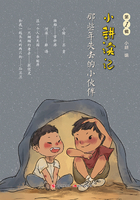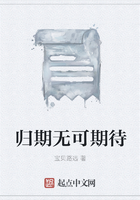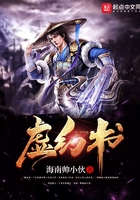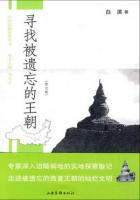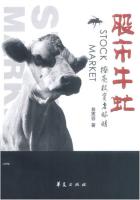“What is there wonderful in that!” said Burkin. “There are plenty of people in the world, solitary by temperament, who try to retreat into their shell like a hermit crab or a snail. Perhaps it is an instance of atavism, a return to the period when the ancestor of man was not yet a social animal and lived alone in his den, or perhaps it is only one of the diversities of human character — who knows? I am not a natural science man, and itis not my business to settle such questions; I only mean to say that people like Mavra are not uncommon. There is no need to look far; two months ago a man called Byelikov, a colleague of mine, the Greek master, died in our town. You have heard of him, no doubt. He was remarkable for always wearing galoshes and a warm wadded coat, and carrying an umbrella even in the very finest weather. And his umbrella was in a case, and his watch was in a case made of grey chamois leather, and when he took out his penknife to sharpen his pencil, his penknife, too, was in a little case; and his face seemed to be in a case too, because he always hid it in his turned-up collar. He wore dark spectacles and flannel vests, stuffed up his ears with cotton-wool, and when he got into a cab always told the driver to put up the hood. In short, the man displayed a constant and insurmountable impulse to wrap himself in a covering, to make himself, so to speak, a case which would isolate him and protect him from external influences. Reality irritated him, frightened him, kept him in continual agitation, and, perhaps to justify his timidity, his aversion for the actual, he always praised the past and what had never existed; and even the classical languages which he taught were in reality for him galoshes and umbrellas in which he sheltered himself from real life.
“ ‘Oh, how sonorous, how beautiful is the Greek language!’ he would say, with a sugary expression; and as though to prove his words he would screw up his eyes and, raising his finger, would pronounce ‘Anthropos!’”
“And Byelikov tried to hide his thoughts also in a case. The only things that were clear to his mind were government circulars and newspaper articles in which something was forbidden. When some proclamation prohibited the boys from going out in the streets after nine o’clock in the evening, or some article declared carnal love unlawful, it was to his mind clear and definite; it was forbidden, and that was enough. For him there was always a doubtful element, something vague and not fully expressed, in any sanction or permission. When a dramatic club or a reading-room or a tea- shop was licensed in the town, he would shake his head and say softly: ‘It is all right, of course; it is all very nice, but I hope it won’t lead to anything!’
“Every sort of breach of order, deviation or departure from rule, depressed him, though one would have thought it was no business of his. If one of his colleagues was late for church or if rumours reached him of some prank of the high-school boys, or one of the mistresses was seen late in the evening in the company of an officer, he was much disturbed, and said he hoped that nothing would come of it. At the teachers’ meetings he simply oppressed us with his caution, his circumspection, and his characteristic reflection on the ill-behaviour of the young people in both male and female high-schools, the uproar in the classes. Oh, he hoped it would not reach the ears of the authorities; oh, he hoped nothing would come of it; and he thought it would be a very good thing if Petrov were expelled from the second class and Yegorov from the fourth. And, do you know, by his sighs, his despondency, his black spectacles on his pale little face, a little face like a pole-cat’s, you know, he crushed us all, and we gave way, reduced Petrov’s and Yegorov’s marks for conduct, kept them in, and in the end expelled them both. He had a strange habit of visiting our lodgings. He would come to a teacher’s, would sit down, and remain silent, as though he were carefully inspecting something. He would sit like this in silence for an hour or two and then go away. This he called ‘maintaining good relations with his colleagues’; and it was obvious that coming to see us and sitting there was tiresome to him, and that he came to see us simply because he considered it his duty as our colleague. We teachers were afraid of him. And even the headmaster was afraid of him. Would you believe it, our teachers were all intellectual, right-minded people, brought up on Turgenev and Shtchedrin, yet this little chap, who always went about with galoshes and an umbrella, had the whole high-school under his thumb for fifteen long years! High-school, indeed—he had the whole town under his thumb! Our ladies did not get up private theatricals on Saturdays for fear he should hear of it, and the clergy dared not eat meat or play cards in his presence. Under the influence of people like Byelikov we have got into the way of being afraid of everything in our town for the last ten or fifteen years. They are afraid to speak aloud, afraid to send letters, afraid tomake acquaintances, afraid to read books, afraid to help the poor, to teach people to read and write…”
Ivan Ivanovitch cleared his throat, meaning to say something, but first lighted his pipe, gazed at the moon, and then said, with pauses: “Yes, intellectual, right minded people read Shtchedrin and Turgenev, Buckle, and all the rest of them, yet they knocked under and put up with it… that’s just how it is.”




